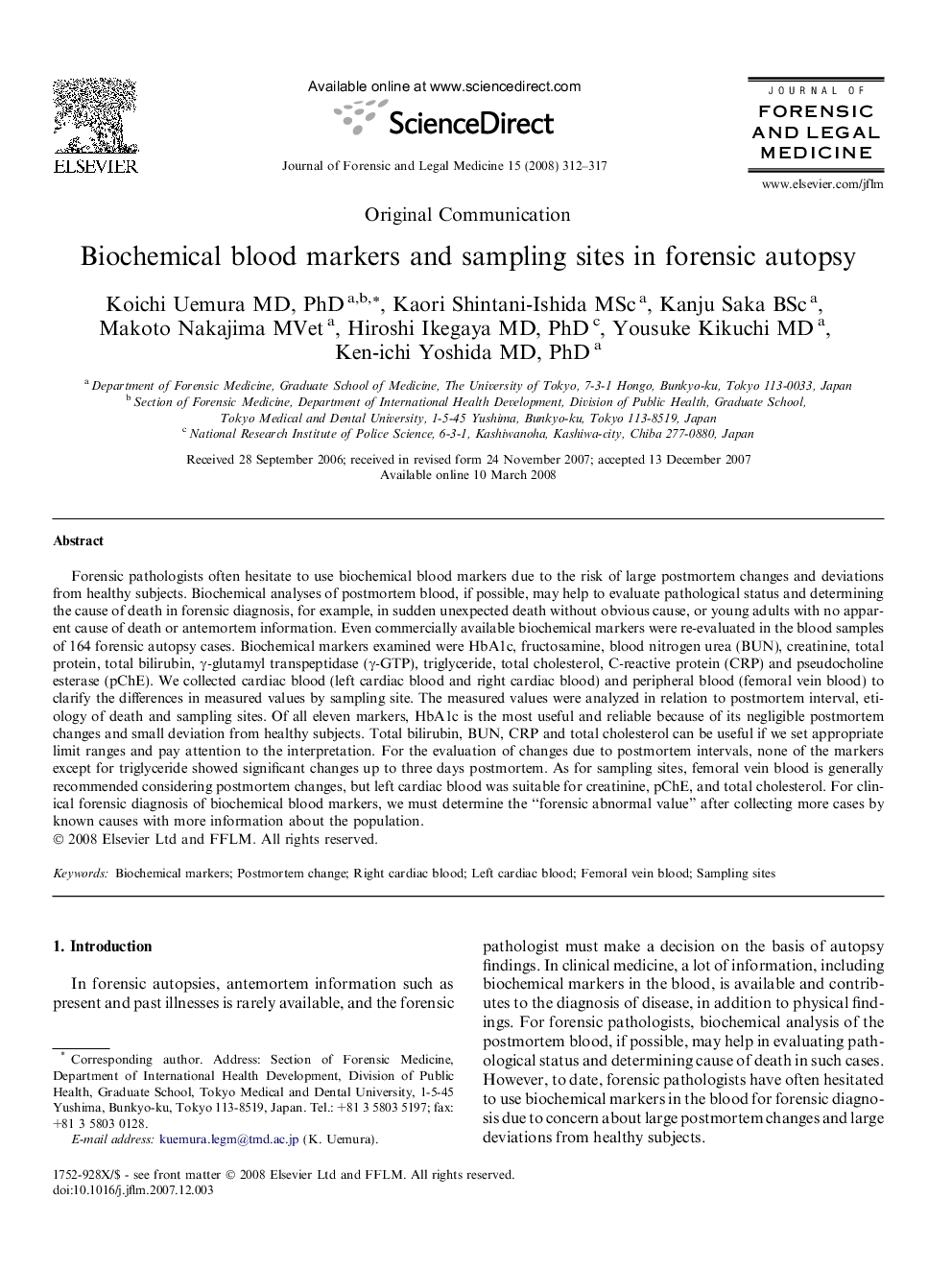| کد مقاله | کد نشریه | سال انتشار | مقاله انگلیسی | نسخه تمام متن |
|---|---|---|---|---|
| 102495 | 161325 | 2008 | 6 صفحه PDF | دانلود رایگان |

Forensic pathologists often hesitate to use biochemical blood markers due to the risk of large postmortem changes and deviations from healthy subjects. Biochemical analyses of postmortem blood, if possible, may help to evaluate pathological status and determining the cause of death in forensic diagnosis, for example, in sudden unexpected death without obvious cause, or young adults with no apparent cause of death or antemortem information. Even commercially available biochemical markers were re-evaluated in the blood samples of 164 forensic autopsy cases. Biochemical markers examined were HbA1c, fructosamine, blood nitrogen urea (BUN), creatinine, total protein, total bilirubin, γ-glutamyl transpeptidase (γ-GTP), triglyceride, total cholesterol, C-reactive protein (CRP) and pseudocholine esterase (pChE). We collected cardiac blood (left cardiac blood and right cardiac blood) and peripheral blood (femoral vein blood) to clarify the differences in measured values by sampling site. The measured values were analyzed in relation to postmortem interval, etiology of death and sampling sites. Of all eleven markers, HbA1c is the most useful and reliable because of its negligible postmortem changes and small deviation from healthy subjects. Total bilirubin, BUN, CRP and total cholesterol can be useful if we set appropriate limit ranges and pay attention to the interpretation. For the evaluation of changes due to postmortem intervals, none of the markers except for triglyceride showed significant changes up to three days postmortem. As for sampling sites, femoral vein blood is generally recommended considering postmortem changes, but left cardiac blood was suitable for creatinine, pChE, and total cholesterol. For clinical forensic diagnosis of biochemical blood markers, we must determine the “forensic abnormal value” after collecting more cases by known causes with more information about the population.
Journal: Journal of Forensic and Legal Medicine - Volume 15, Issue 5, July 2008, Pages 312–317